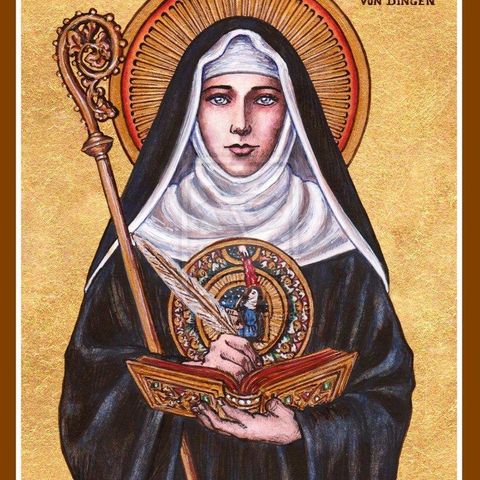Hildegard of Bingen: Doctrine of the Divine Feminine in Nature

Descarga y escucha en cualquier lugar
Descarga tus episodios favoritos y disfrútalos, ¡dondequiera que estés! Regístrate o inicia sesión ahora para acceder a la escucha sin conexión.
Check out the Divine Feminine App! https://thedfapp.com/v2/dashboard#a_aid=Chthonia This week we continue the series on Female Christian Mystics with the polymath saint Hildegard of Bingen. Hildegard began having spiritual visions at...
mostra máshttps://thedfapp.com/v2/dashboard#a_aid=Chthonia
This week we continue the series on Female Christian Mystics with the polymath saint Hildegard of Bingen. Hildegard began having spiritual visions at age 3, and was in a convent by age 8, where she was taught to read and write in Latin. She was an acclaimed mystic, philosopher, botanist, natural healer, and musician. She invented her own language and alphabet called Lingua Ignota. Hildegard's mystical revelations included the idea that nature was not imperfect, but a manifestation of God as Divine Feminine in our world. She was urged to write down her visions, though she also conveyed her experience through music, believing that celestial song existed "before Eden". We look at the traits of this remarkable medieval woman, her fierce independence with respect to Church authorities, and what her experiences say about female mystical experiences.
Links:
Music (chant with Lingua Ignota)
https://www.youtube.com/watch?v=Ua4C2mzWfNQ
Lingua Ignota:
https://en.wikipedia.org/wiki/Lingua_ignota
Información
| Autor | Brigid Burke |
| Página web | - |
| Etiquetas |
Copyright 2024 - Spreaker Inc. an iHeartMedia Company
